The cosmos has always fascinated humanity, and our journey to understand the stars has led to the development of zodiac signs. These celestial symbols are intricately woven into the tapestry of history, connecting ancient civilizations and shaping our modern understanding of astrology. From the prehistoric beginnings of ancient observations to the controversies and criticisms of the present day, the origins and evolution of zodiac signs have a captivating story to tell. Join us as we embark on a journey through time, exploring the ancient astronomical observations of civilizations such as Egypt and Babylon, delving into the Greek zodiac and its influence on society, uncovering the mysteries of the Chinese zodiac, and discovering the unique zodiac systems of cultures around the world. Step into the world of the zodiac and uncover the rich and diverse history behind these celestial symbols.
Contents
- Ancient Astronomical Observations
- The Greek Zodiac
- Chinese Zodiac
- Other Cultural Zodiacs
- The Modern Zodiac
- Controversies and Criticisms
- Conclusion
-
Frequently Asked Questions
- 1. How did ancient civilizations interpret the positions of celestial bodies?
- 2. Were zodiac signs in ancient times the same as the ones we know today?
- 3. How did astrology influence ancient Greek society?
- 4. What is the significance of the Chinese zodiac animal cycle?
- 5. How did the Mayans interpret the zodiac?
- 6. What are the differences between the Indian and Western zodiac systems?
- 7. How did Native American cultures view the zodiac?
- 8. Why did astrology experience a resurgence in popularity in modern times?
- 9. What are some scientific criticisms of astrology?
- 10. Are there alternative views to the concept of zodiac signs?
- References
-
Frequently Asked Questions
- 1. What is the earliest evidence of zodiac signs?
- 2. How did ancient Egyptians influence the development of zodiac signs?
- 3. What are the Babylonian contributions to the zodiac signs?
- 4. Who were the Twelve Olympians in the Greek Zodiac?
- 5. How has astrology influenced society throughout history?
- 6. What is the symbolism behind the Chinese Zodiac?
- 7. How does the yearly animal cycle work in the Chinese Zodiac?
- 8. What is the Mayan Zodiac and how does it differ from other zodiac systems?
- 9. What is the Indian Zodiac and how is it used?
- 10. How does the Native American Zodiac differ from other zodiac systems?
- References
- Read More
Ancient Astronomical Observations
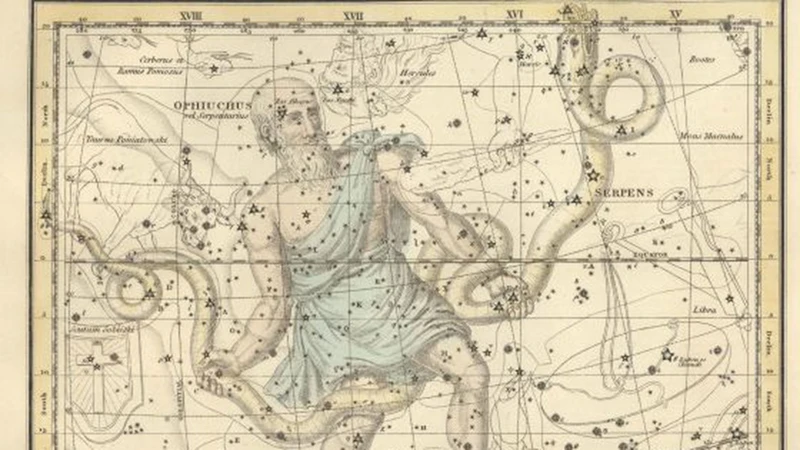
The origins of zodiac signs can be traced back to the ancient astronomical observations made by various civilizations throughout history. In prehistoric times, early humans looked to the stars for guidance and understanding, connecting the movements of celestial bodies with earthly events. The Egyptians, known for their advanced knowledge of astrology, studied the stars and developed a zodiac system based on the annual flooding of the Nile River, which played a vital role in their agricultural practices. The Babylonians, on the other hand, contributed greatly to the development of astrology by creating a twelve-fold division of the sky and associating each section with different constellations. These observations formed the foundation for the zodiac signs we know today, influencing cultures around the world. To learn more about the compatibility of zodiac signs with elements like water and earth, check out our article on cracking the code of astrology. Additionally, if you’re interested in other fascinating mythologies, you can explore the rich world of Japanese mythology legends.
Prehistoric Beginnings
The prehistoric beginnings of zodiac signs can be traced back to the earliest human civilizations that gazed up at the night sky with wonder and fascination. These ancient societies observed the celestial bodies and recognized patterns in their movements. They connected these celestial movements with earthly events, such as seasonal changes and the cycles of nature. Over time, they noticed that certain stars appeared to form distinct patterns, which they associated with animals, objects, and mythical creatures. These observations laid the groundwork for the development of zodiac signs.
The ancient civilizations of Mesopotamia, Egypt, and China, among others, each had their own unique interpretations of the zodiac. In Mesopotamia, the zodiac was closely tied to agricultural practices and the prediction of favorable or unfavorable conditions for farming. The Egyptians, renowned for their advanced knowledge of astrology, developed their zodiac system based on the annual flooding of the Nile River. This natural phenomenon played a crucial role in their agricultural practices, and the Egyptians believed that the movements of the planets and stars influenced the flood patterns.
The early Chinese zodiac, known as Shēngxiào, also has its roots in prehistoric times. The Chinese observed that the 12 full moons in a year roughly corresponded to the 12 lunar cycles. Each lunar cycle was associated with an animal, and these animals became the basis for the Chinese zodiac. Each animal sign represented different characteristics and personality traits.
While the precise origins of zodiac signs in prehistoric times remain shrouded in mystery, their significance and influence on ancient societies cannot be denied. These early observations of the heavens laid the foundation for later civilizations to develop more complex and intricate zodiac systems. To delve deeper into the compatibility of zodiac signs with elements like water and earth, you can explore our article on cracking the code of astrology. Additionally, if you’re interested in other fascinating mythologies, you can discover the rich world of Japanese mythology legends.
Egyptian Influence
The influence of the Egyptians on the development of zodiac signs cannot be underestimated. The ancient Egyptians were deeply connected to the cosmos and its symbolism, believing that the movements of the celestial bodies held significant meaning for human life. They observed the annual flooding of the Nile River, a crucial event that dictated the agricultural cycle and the prosperity of their civilization. These observations led to the creation of the Egyptian zodiac, which consisted of twelve signs associated with different months of the year. Each sign was represented by an animal or a deity, such as Aries the Ram or Scorpio the Scorpion. The Egyptians believed that individuals born under certain zodiac signs possessed specific characteristics and traits, influencing their destiny and guiding their life paths. The Egyptian influence on astrology and zodiac signs can still be seen today, as people explore the compatibility of zodiac signs with elements like water and earth. To delve deeper into the fascinating world of astrology and uncover the secrets of zodiac compatibility, make sure to check out our article on cracking the code of astrology.
Babylonian Contributions
The Babylonians, an ancient civilization known for their advancements in astronomy and astrology, made significant contributions to the development of zodiac signs. They divided the sky into twelve equal sections, each corresponding to a different constellation. These sections, known as zodiacal signs, were established around the 5th century BCE and laid the foundation for the modern zodiac system. The Babylonians associated specific animal symbols with each of these signs, such as the ram, bull, and lion. Their observations and detailed records allowed them to accurately predict the positions and movements of celestial bodies, providing a basis for astrological interpretations.
One key aspect of Babylonian contributions to the zodiac involves their association of certain deities with the planets. For instance, they associated the planet Jupiter with the god Marduk, and Venus with the goddess Ishtar. These celestial connections added a spiritual and divine dimension to the zodiac, linking the movements of the planets to the lives and fortunes of individuals.
The Babylonians’ zodiac system was further enhanced by their development of the zodiacal calendar, which divided the year into twelve sections, each named after one of the zodiac signs. This calendar was used for astrological purposes, helping individuals determine their place within the cosmic order.
The influence of Babylonian contributions to astrology and the zodiac extended beyond their own civilization. As the Babylonians traded and interacted with neighboring cultures, their astrological knowledge spread, influencing ancient Greeks, Egyptians, and other civilizations.
To gain a deeper understanding of how the zodiac signs relate to elements like water and earth, you can explore our article on cracking the code of astrology. If you’re interested in exploring more fascinating mythologies, Japanese mythology legends offer a rich tapestry of stories and characters.
The Greek Zodiac
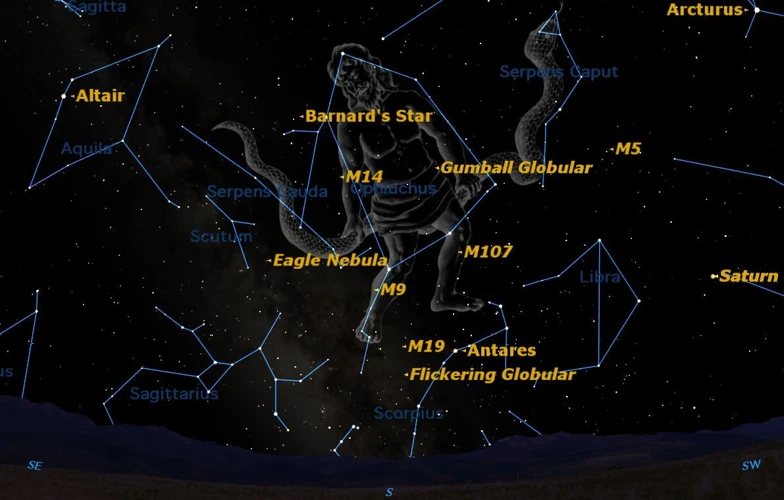
The Greek zodiac holds a prominent place in the realm of astrology, intertwining mythology and celestial observations. The Twelve Olympians, the major gods and goddesses of Greek mythology, played a significant role in the Greek zodiac system. Each Olympian deity was associated with a specific zodiac sign, attributing distinct characteristics and traits to individuals born under their influence. For instance, Zeus, the king of the gods, presided over the sign of Aries, symbolizing leadership and decisive action. Astrology based on the Greek zodiac had a profound influence on Greek society, impacting various aspects of life, including relationships, politics, and even warfare. If you’re interested in exploring the compatibility of zodiac signs with elements like water and earth, check out our article on cracking the code of astrology. Alternatively, you may also discover a wealth of captivating stories in the realm of Japanese mythology legends.
The Twelve Olympians
The Twelve Olympians are a significant aspect of the Greek zodiac. These twelve gods and goddesses were believed to reside on Mount Olympus and hold immense power and influence over various aspects of life. Each deity in the pantheon had their own unique traits and associations. Let’s explore the Olympians in detail:
1. Zeus: The king of the gods, associated with thunder and the sky.
2. Hera: The queen of the gods, associated with marriage and family.
3. Poseidon: The god of the sea, associated with earthquakes and horses.
4. Demeter: The goddess of agriculture and fertility.
5. Athena: The goddess of wisdom, warfare, and crafts.
6. Apollo: The god of music, poetry, and healing.
7. Artemis: The goddess of the hunt, wildlife, and childbirth.
8. Ares: The god of war and violence.
9. Aphrodite: The goddess of love, beauty, and desire.
10. Hephaestus: The god of blacksmiths, craftsmen, and fire.
11. Hermes: The messenger of the gods, associated with cleverness and commerce.
12. Dionysus: The god of wine, revelry, and celebration.
The Twelve Olympians played a central role in Greek mythology and were worshipped and revered by the ancient Greeks. These gods and goddesses were believed to have control and influence over various aspects of human life, and their stories and mythology continue to captivate us to this day.
Astrology & Influence on Society
Astrology, with its roots in ancient civilizations, has had a profound influence on society throughout history. The belief that celestial bodies and their positions can influence human behavior and destiny has captivated the minds of individuals and shaped the course of societies. Astrology has played various roles in different cultures, serving as a guiding force in decision-making, a means of understanding one’s personality traits and potential, and even as a tool for predicting future events. In ancient Greece, astrology was closely tied to religion and mythology, with the twelve zodiac signs representing the attributes of the gods and goddesses known as the Twelve Olympians. This connection between astrology and mythology added depth and significance to the interpretations of individual horoscopes. Fast forward to modern times, astrology has expanded its reach through advancements in technology, allowing individuals to easily access horoscopes and birth chart readings. Astrology has become a prominent part of popular culture, with newspapers, magazines, and websites offering daily horoscopes and astrological insights. While some people regard astrology as mere entertainment, many still find comfort and guidance in its teachings. To delve deeper into the compatibility of zodiac signs, you can explore our article on cracking the code of astrology. Additionally, if you’re curious about the traits and characteristics of lesser-known zodiac sign, Ophiuchus, you can discover more about it here. Astrology continues to be a dynamic and evolving field, fascinating individuals and impacting societies worldwide.
Chinese Zodiac
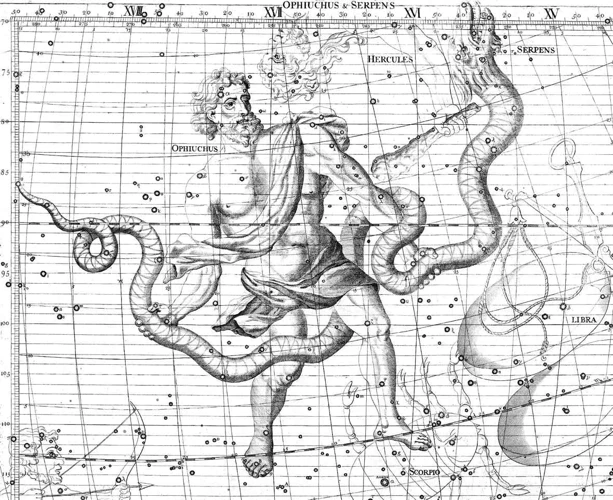
The Chinese zodiac holds a special place in the realm of astrology, with its origins dating back thousands of years. Unlike the Western zodiac, which is based on the movement of the sun, the Chinese zodiac draws its influence from the lunar calendar. The Chinese zodiac consists of twelve animal signs, each associated with a specific year in a repeating cycle. These animals, including the Rat, Ox, Tiger, Rabbit, Dragon, Snake, Horse, Goat, Monkey, Rooster, Dog, and Pig, hold deep symbolism and represent different personality traits and characteristics. The Chinese zodiac is not only used for astrological purposes, but it also plays a significant role in Chinese culture, influencing everything from fortune-telling to matchmaking. Understanding your Chinese zodiac sign and its attributes can provide valuable insights into your life and relationships. To learn more about the yearly animal cycle and the symbolism behind each animal, delve into our detailed exploration of the Chinese zodiac.
Origins and Symbolism
The Chinese zodiac, with its origins dating back over 2,000 years, holds deep symbolism and cultural significance. The zodiac is based on a twelve-year cycle, each year associated with a specific animal sign. The exact origins of the Chinese zodiac are shrouded in folklore and legends, but one popular myth tells of how the Jade Emperor invited animals to a race, and the order in which they arrived determined their place in the zodiac. The symbolism of each animal sign carries its own unique traits and characteristics, influencing the personality traits and destiny of individuals born under that sign. For instance, the Rat symbolizes intelligence and adaptability, while the Dragon represents power and ambition. The Chinese zodiac is deeply integrated into Chinese culture, influencing various aspects of life such as birth ceremonies, horoscopes, and even business decisions. To delve deeper into the symbolism and compatibility of the Chinese zodiac signs, be sure to check out our article on cracking the code of astrology. If you’re intrigued by other mythological legends, you might enjoy exploring the captivating world of Japanese mythology legends.
Yearly Animal Cycle
The Chinese zodiac, also known as Shengxiao, is a fascinating system based on a yearly animal cycle. Unlike the Western zodiac which is based on the months of the year, the Chinese zodiac follows a lunar calendar, with each year being associated with a specific animal sign. There are twelve animals in total, including the Rat, Ox, Tiger, Rabbit, Dragon, Snake, Horse, Sheep, Monkey, Rooster, Dog, and Pig. Legend has it that the order of these animals was determined by a race held by the Jade Emperor. Each animal represents different characteristics and traits, and it is believed that the year you are born under a specific animal sign can influence your personality and destiny. For instance, those born in the Year of the Rat are believed to be resourceful and intelligent, while those born in the Year of the Dragon are seen as powerful and ambitious. This yearly animal cycle has deep cultural significance in Chinese astrology and is used to determine compatibility, make predictions, and guide important life decisions. Understanding the Chinese zodiac and the yearly animal cycle can provide valuable insights into oneself and others. To explore more about compatibility, you can refer to our article on cracking the code of astrology. Additionally, if you have an interest in legends and mythologies, you might want to delve into the enchanting world of Japanese mythology legends.
Other Cultural Zodiacs
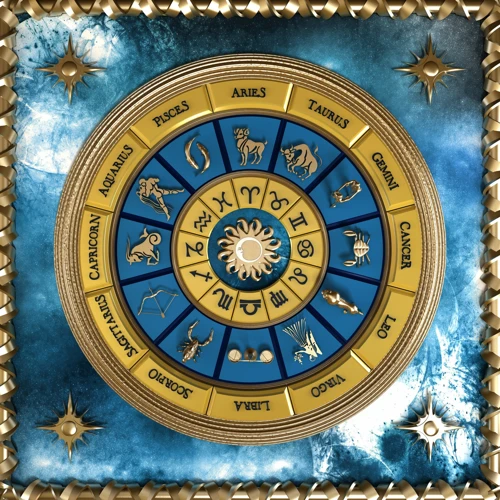
The zodiac is not limited to the familiar Western and Chinese systems; many other cultures around the world have their own unique zodiacs. The Mayan civilization, known for their advanced understanding of astronomy, developed a zodiac system based on their observations of the stars and celestial events. Each Mayan sign corresponds to a specific animal or deity and is believed to influence a person’s personality and destiny. In India, the zodiac is deeply rooted in Vedic astrology, with each sign representing different qualities and characteristics. Similarly, Native American tribes have their own zodiacs, which often draw connections between animal spirits and human traits. These diverse cultural zodiacs offer fascinating insights into the beliefs and traditions of these civilizations. If you want to delve deeper into the compatibility of zodiac signs in astrology, you can check out our article on cracking the code of astrology. If you’re interested in exploring more mythologies from around the world, you can discover intriguing legends from Japanese mythology.
Mayan Zodiac
The Mayan civilization, renowned for its advanced mathematical and astronomical knowledge, also had its own unique zodiac system. The Mayan zodiac, also known as the Tzolk’in, consisted of 20 different day signs, each represented by a specific symbol. These symbols ranged from animals like the jaguar and the snake to natural elements like water and wind. Similar to other zodiac systems, the Mayan zodiac played a significant role in the lives of the Mayan people. It was used to determine personal characteristics, predict future events, and guide important decisions. Each day sign had its own set of attributes and qualities, influencing an individual’s personality and destiny. Understanding the Mayan zodiac required a deep knowledge of astronomy and mathematics, as well as an appreciation for the spiritual and symbolic significance of the celestial bodies. Exploring the Mayan zodiac offers a fascinating insight into the ancient Mayan civilization and its complex understanding of the cosmos. To further explore the compatibility of zodiac signs, you can read our article on cracking the code of astrology, where we delve into the intricacies of water and earth compatibility.
Indian Zodiac
The Indian zodiac, also known as the Vedic zodiac or Jyotish, holds a significant place in Indian astrology and is deeply rooted in the country’s cultural and religious beliefs. Unlike the Western zodiac, which is divided into twelve equal parts, the Indian zodiac consists of twenty-seven Nakshatras or lunar mansions, each representing a specific energy or quality. These Nakshatras play a crucial role in determining an individual’s personality traits, compatibility with others, and life events. The Indian zodiac system also emphasizes the influence of planetary movements on one’s life, with each planet ruling over specific Nakshatras. Astrologers in India rely on ancient texts and calculations to create horoscopes that provide insights into an individual’s destiny, career prospects, and relationships. The Indian zodiac is deeply intertwined with the country’s mythology and spirituality, reflecting the belief in karma and the cycle of birth and rebirth. To delve deeper into the compatibility aspects and understand how the Indian zodiac interacts with elements like water and earth, you can explore our article on cracking the code of astrology. Alternatively, if you’re curious about other fascinating mythologies, you can discover the enchanting world of Japanese mythology legends.
Native American Zodiac
The Native American Zodiac is a unique and diverse system that reflects the deep connection between indigenous cultures and the natural world. Unlike the Western zodiac, which is based on the movements of the sun, the Native American zodiac focuses on the symbolism of various animals and their characteristics. Each animal represents a different time period within the year, offering insights into an individual’s personality traits and spiritual qualities based on their birth date.
The Native American zodiac consists of twelve animal signs, each with its own significance and attributes. These signs include the Bear, Beaver, Deer, Raven, Snake, Elk, Otter, Cougar, Wolf, Red Hawk, Salmon, and Owl. Each sign is associated with different elements, such as water, earth, fire, and air, bringing a unique perspective and energy to the individual’s personality.
The Bear, for example, is seen as a symbol of strength, protection, and healing, representing those born between August 22 and September 21. Individuals born under the sign of the Beaver, which corresponds to April 20 to May 20, are known for their resourcefulness, perseverance, and practicality. Each animal sign in the Native American zodiac encompasses a vast range of qualities, forming a comprehensive guide to understanding oneself and the natural world.
It is important to note that the Native American zodiac varies among different tribes and regions, with each having their own interpretations and animal symbolism. The teachings and traditions associated with the Native American zodiac serve as a reminder of the deep spiritual connection between humans and nature, emphasizing the importance of living in harmony with the world around us. To explore further compatibility between different astrological systems, such as the water and earth compatibility in Western astrology, check out our article on cracking the code of astrology.
The Modern Zodiac
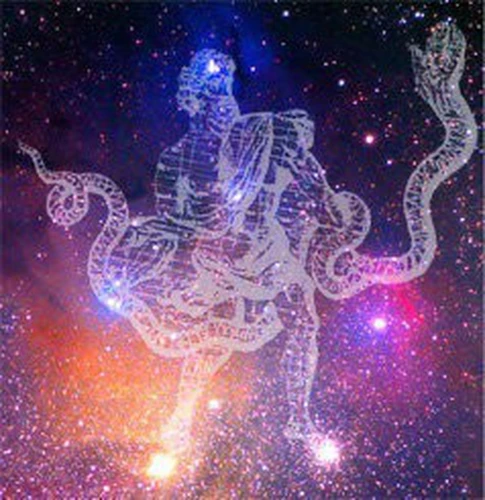
The modern zodiac has experienced significant expansion and popularity in Western astrology. Building upon the foundations laid by ancient civilizations, the modern zodiac encompasses a total of twelve signs, each representing different personality traits and characteristics based on the position of the sun at the time of a person’s birth. While the Greek zodiac initially influenced the development of Western astrology, it has since evolved to include additional influences from various cultures and traditions. The modern zodiac has become widely recognized and has gained immense popularity, with many people regularly consulting horoscopes and seeking insights into their lives based on their zodiac sign. To delve deeper into the intriguing world of astrology and explore the compatibility of zodiac signs with elements like water and earth, be sure to read our article on cracking the code of astrology.
Expansion of Western Astrology
The expansion of Western astrology in history was marked by significant developments and transformations that shaped its influence on society. During the Hellenistic period, the Greek astrologers played a crucial role in popularizing astrology as a predictive tool. They not only contributed to the refinement of astronomical calculations but also incorporated the planets and their movements into astrology. This integration of celestial bodies, along with the Greek pantheon of gods and goddesses, gave birth to horoscopic astrology, which is now widely practiced.
The spread of astrology continued during the Roman Empire, where it became intertwined with religious and political matters. Roman emperors consulted astrologers for advice, and public horoscopes became popular. However, with the rise of Christianity in the medieval period, astrology faced significant opposition from the church as it conflicted with Christian beliefs and was viewed as a form of divination.
Despite the challenges, astrology experienced a revival during the Renaissance period. The rediscovery of ancient Greek and Roman texts led to the resurgence of interest in astrology among scholars and intellectuals. Astrology was seen as a way to understand the universe and one’s place within it. Influential figures such as Johannes Kepler and Galileo Galilei also made notable contributions to astrological studies during this time.
The development of printing technology in the 15th century enabled the widespread dissemination of astrological texts, making astrology accessible to a larger audience. The advent of newspapers and magazines in the 18th and 19th centuries further popularized astrology, with horoscope columns becoming a regular feature. Today, the internet provides a vast platform for the dissemination of astrology, allowing people from all over the world to access astrological information and forecasts with just a few clicks.
The expansion of Western astrology has not been without controversy and skepticism. Critics argue that it lacks scientific evidence and is based on subjective interpretations. However, astrology’s enduring popularity demonstrates its continued relevance in people’s lives. Whether seeking compatibility with different astrological elements like water and earth, or exploring the fascinating world of Japanese mythology legends, astrology continues to captivate and influence individuals.
To learn more about the traits and characteristics of the lesser-known 13th zodiac sign, Ophiuchus, you can check out our article on Ophiuchus traits and characteristics.
Popularity and Horoscopes
The popularity of zodiac signs and horoscopes has soared in recent years, becoming a cultural phenomenon that captivates people around the world. Individuals are drawn to the allure of uncovering insights about their personalities, relationships, and future through astrology. The rise of the internet and social media platforms has further amplified the reach and influence of horoscopes, making them easily accessible to a wide audience. Daily, weekly, and monthly horoscopes offer personalized predictions and advice based on an individual’s zodiac sign, creating a sense of intrigue and excitement. The popularity of horoscope apps, websites, and social media accounts has skyrocketed, providing users with on-the-go access to their horoscopes and a platform to discuss and share their astrological experiences. However, it is important to note that while horoscopes can provide entertainment and a sense of connection, their scientific validity is a subject of debate. To explore more about the field of astrology, including its compatibility with elements like water and earth, check out our article on cracking the code of astrology. Additionally, if you’re interested in diving into fascinating mythologies, you can explore the rich world of Japanese mythology legends.
Controversies and Criticisms

While zodiac signs have a long and intriguing history, they are not without controversies and criticisms in the modern era. One major point of contention comes from the scientific community, which questions the validity of astrology as a science. Skeptics argue that there is no scientific evidence to support the claims made by astrology, attributing personality traits or future predictions to zodiac signs. They argue that astrology lacks empirical proof and relies on subjective interpretations. Additionally, some critics argue that the idea of 12 distinct personality types based on birth dates is overly simplified and does not take into account the complexity of human nature. Despite these criticisms, astrology continues to enjoy popularity and a large following. To explore more about the controversies surrounding astrology and its validity, you can check out our article on alternative views.
Scientific Inquiry
Scientific inquiry plays a crucial role in examining the validity and accuracy of zodiac signs. While astrology has captivated human interest for centuries, it has also faced scrutiny from the scientific community. Skeptics argue that the perceived connections between celestial bodies and human personalities are based on subjective interpretations and lack empirical evidence. Scientists employ rigorous methods to investigate the claims made by astrology, conducting studies, and analyzing data to determine the statistical significance of astrological predictions. These studies often involve surveying large groups of individuals and comparing their personality traits with their assigned zodiac signs. By examining the results, scientists aim to uncover whether there are any correlations that surpass mere chance. Despite scientific inquiry challenging the validity of astrology, it continues to remain popular among enthusiasts. To explore the intricacies of astrology and the compatibility between zodiac signs and elements such as water and earth, you can refer to our comprehensive guide on cracking the code of astrology. Alternatively, if you’re interested in exploring other fascinating mythologies, you can delve into the world of Japanese mythology and legends.
Validating Zodiac Accuracy
Validating the accuracy of zodiac signs has been a subject of scientific inquiry and debate. Critics argue that there is no empirical evidence to support the claims made by astrology, attributing personality traits and predicting future events based on zodiac signs. Skeptics argue that the apparent accuracy of astrological predictions can be attributed to vague and generalized statements, known as the “Barnum effect,” which allows individuals to apply the information to their own lives. Scientific studies have failed to establish any causal relationship between zodiac signs and personality traits. However, proponents of astrology argue that the complexity of individual birth charts and the unique combination of planetary placements provide a more detailed and accurate analysis. It’s essential to approach astrology with an open mind and acknowledge that its validity and accuracy are subjective experiences. If you’d like to explore the compatibility of zodiac signs with elements like water and earth, you can learn more in our article on cracking the code of astrology.
Alternative Views
Alternative views regarding zodiac signs have emerged over time, challenging the traditional notions of astrology. Skeptics and critics argue that the personality traits associated with zodiac signs lack scientific evidence and are simply based on subjective interpretations. They question the validity of astrology as a predictive tool and argue that any accuracy observed is merely coincidental. Some alternative views propose that other factors, such as upbringing, environment, and personal experiences, have a more significant influence on an individual’s personality than their zodiac sign. These viewpoints suggest that astrology should be approached with caution and skepticism, considering it more of a form of entertainment rather than a scientific practice. However, despite these alternative perspectives, astrology continues to hold a strong fascination for many individuals, who find personal meaning and guidance in the study and interpretation of zodiac signs. To explore further insights into astrology and its interpretations, you may be interested in delving into the concept of water-earth compatibility and how it relates to the zodiac signs. Alternatively, you can discover fascinating legends and stories from Japanese mythology, which offer unique perspectives on celestial phenomena.
Conclusion

The evolution of zodiac signs throughout history is a testament to the enduring fascination of human beings with the cosmos. From the ancient astronomical observations of civilizations like the Egyptians and Babylonians to the diverse cultural zodiacs of the Mayans, Indians, and Native Americans, the concept of the zodiac has woven itself into the fabric of our societies. The Greek zodiac, with its connection to the Twelve Olympians and the profound influence of astrology on society, further cemented the zodiac’s significance. As we delve into the modern zodiac, we witness the expansion of Western astrology and its popularity in horoscopes that capture the imagination of millions. However, the topic of zodiac signs is not without controversy and criticism. Scientific inquiries into the validity of the zodiac’s accuracy have been met with skepticism, and alternative views exist which question the significance and relevance of astrology in our lives. Despite these debates, the rich history and cultural significance of zodiac signs cannot be denied. They continue to captivate and intrigue individuals across the globe, offering a window into the ancient observations and beliefs that have shaped our understanding of the cosmos. To unlock the secrets of astrology and explore the compatibility of zodiac signs with elements like water and earth, refer to our article on cracking the code of astrology. Alternatively, delve into the fascinating world of Japanese mythology legends for a different perspective on celestial symbolism. And if you’re curious about the lesser-known astrological sign, Ophiuchus, discover its traits and characteristics here. The zodiac is a captivating subject that invites further exploration and contemplation, reminding us of humanity’s eternal quest to comprehend the celestial wonders that surround us.
Frequently Asked Questions

1. How did ancient civilizations interpret the positions of celestial bodies?
Ancient civilizations interpreted the positions of celestial bodies as signs from the gods or as indicators of earthly events such as agricultural cycles, natural disasters, and the movement of seasons.
2. Were zodiac signs in ancient times the same as the ones we know today?
No, the zodiac signs in ancient times were not exactly the same as the ones we know today. Ancient civilizations associated different constellations with their zodiac signs, taking into account their cultural beliefs and observation of celestial patterns.
3. How did astrology influence ancient Greek society?
Astrology held great influence in ancient Greek society, where it was believed that the gods and goddesses themselves governed and influenced human lives. Astrological predictions were consulted for various purposes, including decision-making, relationships, and understanding one’s strengths and weaknesses.
4. What is the significance of the Chinese zodiac animal cycle?
The Chinese zodiac animal cycle is highly significant in Chinese culture as it is believed to determine a person’s personality traits, compatibility with others, and even their fortune in different years. Each animal represents a different set of characteristics and is associated with a specific year in a twelve-year cycle.
5. How did the Mayans interpret the zodiac?
The Mayans interpreted the zodiac through their own unique perspective, associating different deities with specific periods of the year. They used their zodiac system to track time, predict future events, and guide religious ceremonies.
6. What are the differences between the Indian and Western zodiac systems?
The Indian zodiac system, also known as Vedic astrology, differs from the Western zodiac system in several ways. The Indian zodiac places more emphasis on the moon sign rather than the sun sign and uses different constellations to divide the sky.
7. How did Native American cultures view the zodiac?
Native American cultures had their own unique interpretations of the zodiac, often connecting animal symbols with different personality traits and spiritual energies. The zodiac played a significant role in their spiritual practices, rituals, and understanding of the natural world.
8. Why did astrology experience a resurgence in popularity in modern times?
Astrology experienced a resurgence in popularity in modern times due to various cultural and societal factors. People seek guidance, meaning, and a deeper understanding of themselves, leading to an increased interest in astrology as a tool for self-reflection and personal growth.
9. What are some scientific criticisms of astrology?
Scientific criticisms of astrology include the lack of empirical evidence to support its claims, the subjective nature of horoscope readings, and the failure to establish a direct causal relationship between celestial positions and human behavior or personality traits.
10. Are there alternative views to the concept of zodiac signs?
Yes, there are alternative views to the concept of zodiac signs. Skeptics and rationalists argue that astrology is purely pseudoscience, lacking any scientific basis. Some individuals also view zodiac signs as purely entertainment or as a form of self-reflection rather than a prediction of future events.
References
- What are zodiac signs? Their history and origin | Astrology
- On the origin of the 12 zodiac constellation system in ancient …
- When The Babylonians Invented The Horoscope
Frequently Asked Questions

1. What is the earliest evidence of zodiac signs?
The earliest evidence of zodiac signs dates back to prehistoric times, where cave paintings depict celestial symbols.
2. How did ancient Egyptians influence the development of zodiac signs?
Ancient Egyptians used zodiac signs to track the movement of celestial bodies and their influence on human behavior and events.
3. What are the Babylonian contributions to the zodiac signs?
The Babylonians developed a twelve-month calendar based on the movement of the sun through the zodiac constellations, influencing later astrological systems.
4. Who were the Twelve Olympians in the Greek Zodiac?
The Twelve Olympians were the major gods and goddesses in Greek mythology who were associated with different zodiac signs.
5. How has astrology influenced society throughout history?
Astrology has had a significant impact on various aspects of society, including religion, medicine, and even political decisions.
6. What is the symbolism behind the Chinese Zodiac?
The Chinese Zodiac utilizes animals as symbols, representing different personality traits and characteristics believed to influence a person’s life.
7. How does the yearly animal cycle work in the Chinese Zodiac?
The Chinese Zodiac follows a twelve-year cycle, with each year being associated with a specific animal sign that influences people born in that year.
8. What is the Mayan Zodiac and how does it differ from other zodiac systems?
The Mayan Zodiac is based on the Mesoamerican calendar and features different symbols and meanings compared to the Western zodiac.
9. What is the Indian Zodiac and how is it used?
The Indian Zodiac, also known as Vedic astrology, has its roots in ancient Indian scriptures and is primarily used for predictive purposes based on planetary movements.
10. How does the Native American Zodiac differ from other zodiac systems?
The Native American Zodiac draws inspiration from animals and their symbolism, focusing on a deeper connection between nature and human characteristics.
References
- Origin of the Zodiac Explained: A Brief History of Astrology …
- The Origin of Zodiac Signs Symbols
- What are zodiac signs? Their history and origin | Astrology







